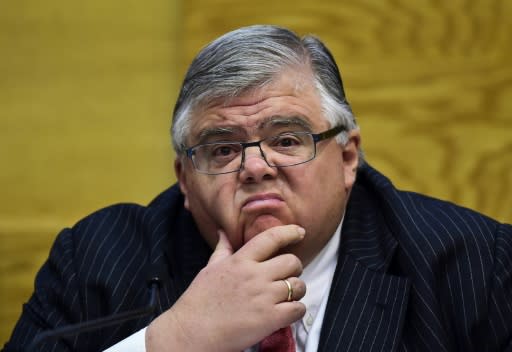Mexico raises interest rate to new high

Mexico's central bank raised its benchmark interest rate to a new eight-year high Thursday, seeking to rein in inflation.
It raised the key rate for Latin America's second-largest economy a quarter-point, to seven percent -- the highest level since February 2009, when the international financial crisis was at its height.
Mexico's inflation rate is also at an eight-year high -- 6.16 percent. The central bank is keen to bring it back below the target ceiling of four percent.
The bank also faces pressure to keep pace with rate rises in the United States, where the Federal Reserve raised its key rate last week by a quarter-point, to 1.0-1.25 percent.
The fear is that foreign capital will flood out of Mexico and into the United States if interest rates are more attractive in the giant northern neighbor.
The central bank has now raised interest rates six times since Donald Trump won the US presidential election in November, plunging the Mexican economy into uncertainty because of his vows to overhaul the North American Free Trade Agreement (NAFTA).
For Mexico, which sends 80 percent of its exports to the United States, the deal is a cornerstone of its economy, and the peso plunged to an all-time low after Trump took office.
The central bank said it was optimistic that the economy was now stabilizing, however.
"The monetary policy that the Bank of Mexico has implemented has contributed to keeping medium- and long-term inflation forecasts stable," it said.
It predicted inflation would peak "in the coming months" and then gradually return to target.

 Yahoo Finance
Yahoo Finance 